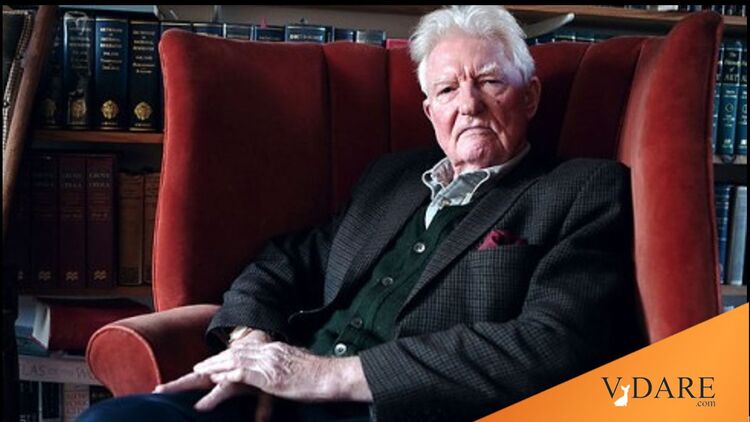


By Steve Sailer
01/12/2023
English journalist-historian Paul Johnson has died at age at age 94. As I wrote in 2015:
Johnson is best known in the United States for his stunning 1983 history of the 20th century, Modern Times, written after his switch from Labour to Tory during the tumultuous mid-1970s. (Tom Stoppard’s 1978 play about foreign correspondents, Night and Day, is dedicated to Johnson.) But now I like best Johnson’s 1972 history of the English people, The Offshore Islanders written from an idiosyncratic socialist patriot viewpoint that had otherwise largely died with George Orwell.
Modern Times conclusively decided the old debate over whether narrative history requires exact dates: a simple reality test for any theory of cause and effect is that the former precedes the latter in time.
Johnson’s memory for dates, insightful quotes, and amusing anecdotes is perhaps the most capacious of any English-language journalist of our time, exceeding even that of the late Christopher Hitchens. Johnson’s colossal mental database, combined with his talent for pattern recognition, makes his books a stimulating combination of history and opinion journalism.
On the other hand, Johnson’s knack for hypothesis generation is so fertile that he never really has time to prove his ideas conclusively before he’s off to the next one. Thus, he doesn’t write definitive books, he writes provocative ones.
For example, his enormous 1991 volume The Birth of the Modern: World Society 1815-1830 was theoretically organized around his thesis that the modern world began in the 15 years following the Battle of Waterloo. But that imponderable notion was mostly an excuse for Johnson to brain-dump all the best lines he’d stored up from the Duke of Wellington, Jane Austen, and Lord Byron, and the larger patterns they imply.
Johnson also knew an absurdly wide range of famous individuals. E.g., one of his tutors at Oxford was C.S. Lewis, while man of the theatre Kenneth Tynan lived down the hall.